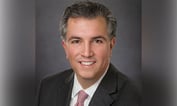The movement to legalize same-sex marriage in the U.S. has progressed with remarkable speed in the year since the Supreme Court struck down the Defense of Marriage Act’s denial of federal benefits to lawfully married same-sex couples.
A recent ruling by the Court of Appeals for the 10th Circuit in Denver declared that same-sex couples had a “fundamental right” to marry. That ruling struck down Utah’s ban on same-sex marriage, as did one the same day in Indiana.
Other federal appeals court decisions — not all necessarily pro-same-sex-marriage — are expected this year.
But a year after the DOMA decision, lesbian, gay, bisexual and transgender investors are still struggling to understand changing laws and are concerned about the financial and legal implications involved, according to new research by Wells Fargo.
Eighty-three percent of those surveyed said they did not fully understand how federal and state laws applied, including 67% of respondents who were currently in legal same-sex marriages.
Despite the confusion, just 47% who were in same-sex marriages or partnerships had sought guidance to help them figure out how recent court rulings and laws affected them personally.
Versta Research conducted an online survey on behalf of Wells Fargo from April 8 to 25 of 875 LGBT investors nationwide. Qualified respondents were non-students, ages 25 to 75, who were the primary or joint financial decision-maker in the household with household investable assets of at least $25,000.
Conversations About Money
The survey showed that LGBT couples had a strong focus on the financial benefits and risks of marriage, but many of these couples were not having conversations about money.
Just 37% of survey participants who were in same-sex partnerships said new marriage laws had prompted new conversations about money.
Twenty-one percent reported that they rarely or never talked about money, while 25% said they talked about money “a lot.”
And 38% admitted that discussions about money had led to friction in their relationships.
More important, researchers said, less than a third of recently married LGBT respondents had reviewed key components of their overall financial health for any changes or adjustments after getting married, including emergency savings, a written retirement savings or investment strategy, a plan or strategy to reduce debt and a careful budget to manage spending.
“So much has changed in the year since the DOMA rulings, and today same-sex couples can legally marry in 19 states and the District of Columbia,” Katherine Dean, managing director of wealth planning at Wells Fargo Private Bank, said in a statement.
“These changes, however, don’t appear to be spurring on conversations about financial issues like saving, investing, and preparing for retirement. When the laws change in a relatively short amount of time, however, there are typically more questions than answers. As an industry, it’s incumbent upon us to provide the kind of information LGBT couples need to make sound decisions so they can achieve their financial goals.”
Seeking Advice








 June 30, 2014 at 09:42 AM
June 30, 2014 at 09:42 AM










